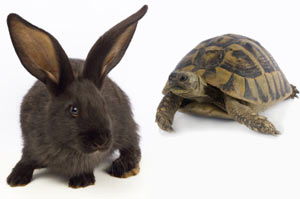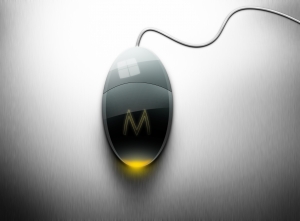Today’s guest post is from Alan Grainger, discussing the appeal of the viral buzz over the stable brand identity.
Will Marketers Continue To Choose Viral Over Brand Identity?
 The spread of viral marketing from simply being an online phenomenon to an accepted form of television advertising seems to have gathered pace this year, with some of the biggest brands choosing to ditch their time honoured identities in favour of spoof adverts.
The spread of viral marketing from simply being an online phenomenon to an accepted form of television advertising seems to have gathered pace this year, with some of the biggest brands choosing to ditch their time honoured identities in favour of spoof adverts.
Both Pizza Hut and Gillette have jumped on the “Compare The Meerkat” bandwagon by breaking with tradition and releasing humorous adverts with the intention of grabbing online interest too.
Both of these companies have some of the most ingrained brand images through their adverts and have created a strong and consistent message through their television presence. This is probably all the more reason for changing their direction so dramatically with these new spoof adverts and it is sure to awaken viewers who normally glaze over the standard generic adverts that they have seen for years.
It seems that whatever new product is being sold by either company, the advert is still the same, and this has been the bedrock of establishing a strong brand message for many years.
Pizza Hut & Gillette
We all know what to expect from a good old Pizza Hut advert. A family is bored and they don’t know what to do, they go to Pizza Hut, cut to a shot of the new product (invariably the same old pizza with a new way of shoving more cheese onto it), cue a shot of the cheese going all stringy and end with the family looking smug.
It’s the same with Gillette who have also been running almost the same advert for years. Enter a ridiculously good looking man (celebrity or otherwise) who doesn’t really look like he even needs a shave, strip him off (obviously), get a shot of him shaving and then cut to an animation of some blades cutting a hair. You then finish with a shot of him looking smug with an impossibly beautiful woman stroking his face.
The continuity of this brand message has certainly been successful for both of these companies for many years, but with every company currently looking to create a new way of standing out from their peers it seems that now is a good time to ditch the time honoured brand message ad and focus on something that will create a buzz.
Viral Buzz
In the case of these two companies it stands a good chance of working too. With such a predictable history of adverts, coming up with something radically new is likely to snap viewers out of their daze and force them to take notice of the ad. It is likely to create a buzz around the company and prompt people online to find out what all the fuss is about if they have missed the ad on TV. In this way it provides a good avenue for online exposure and may even have the effect of turning the campaign “viral”, being passed around, shared and consumed by online viewers.
Long Term Success
While this is likely to achieve a great deal of short term success, don’t bank on it being a long term solution. These companies have worked incredibly hard over the years to establish the right brand image, so you can prepare yourself for more of the same smug face stroking and stringy cheese in the future. Coming up with something funny and quirky is a great way of scoring short term success, but establishing a strong and trustworthy brand is a timely process that takes more than just a few novelty adverts.
Companies spend millions every year in using brand consistent advertising and promotional products to establish their brand identity, so it seems that while viral hits may produce some short term gains, building a strong brand identity is still key to long term success.
Thanks Alan!
Alan Grainger is an in-house B2B web marketer for The Corporate Gifts Company, a leading UK specialist in the business gifts sector. He writes articles exploring the issues faced by the B2B web marketer, giving an ‘in the trenches’ view from an in-house SEO department.
Lucy is Editor at Corporate Eye


